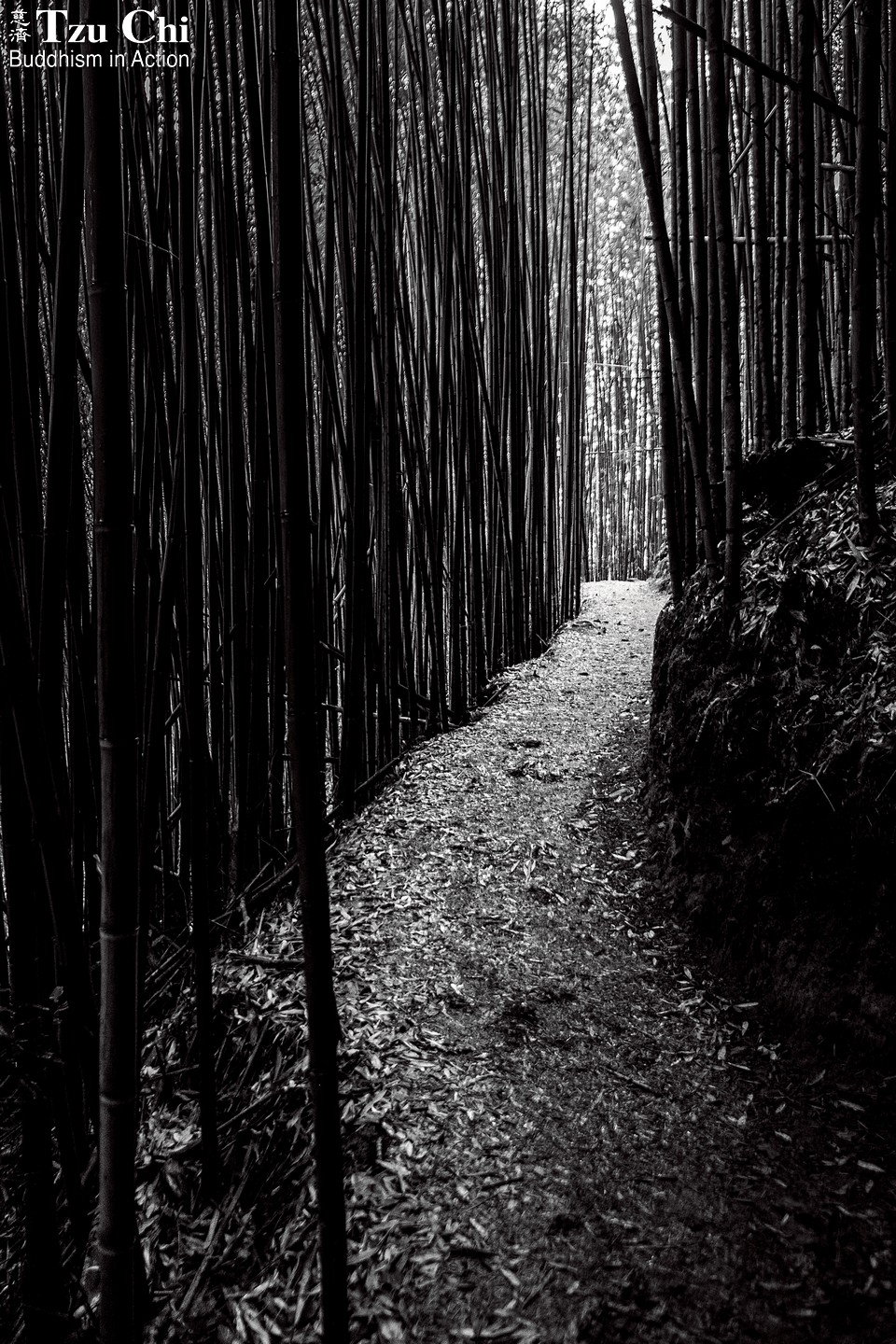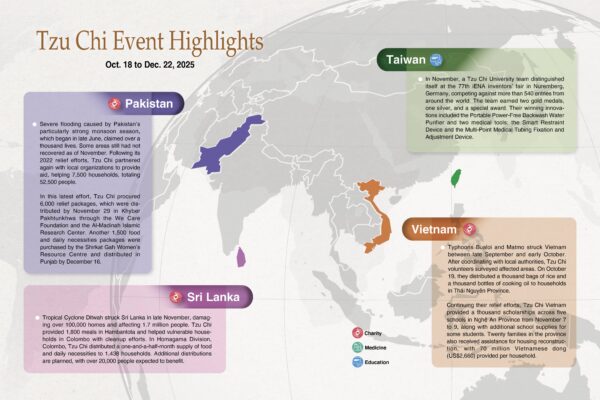Translated by Teresa Chang
I often say that walking the Bodhisattva Path in this world is no easy task. It takes courage to face situations that most people would rather avoid or turn away from. Despite the difficulty, we must press on with determination, especially in a world so full of suffering. When disasters strike, what can bring peace to troubled hearts? The answer is that familiar word: love. We need people not only willing to help, but ready to offer timely aid without hesitation—people who see all living beings as family and step forward in times of need to offer the warmth of love.
Recently, colleagues at the Tzu Chi Foundation compiled a historical account of our volunteers’ response to the plane crash that occurred in Taoyuan, northern Taiwan, in 1998. On the day of the crash, which claimed the lives of all those on board, dozens of volunteers rushed to the scene to chant the Buddha’s name for the deceased. They worked in shifts throughout the night to keep the chanting uninterrupted.
At first, I thought their main role would be limited to chanting and consoling grieving families. But what they did far exceeded my expectations. Some accompanied families as they identified personal belongings and searched for the remains of their loved ones. Others, with deep reverence, helped recover victims’ fragmented remains—each movement carried out with care and solemnity. As they bent and rose, they softly recited “Amitabha Buddha.” Their sincerity moved the personnel on-site and brought a sense of calm to the scene.
Despite their dedication, I couldn’t help but worry about whether witnessing such devastation had taken an emotional toll. So, I traveled to Taoyuan to hear firsthand from the volunteers who had taken part. I asked, “Were you able to eat? Did you sleep at all during those few nights?” They replied, “We ate as usual. But on the first night, we couldn’t sleep; we were busy the whole time, then went straight on to prepare breakfast for the rescue teams. On the second night, the images from the crash still haunted us. By the third night, we were so exhausted we finally managed to sleep. It wouldn’t be true to say we weren’t afraid, but our emotions have gradually settled. Mentally and physically, we’re doing fine now.”
These living bodhisattvas, guided by love, focused wholeheartedly on tending to the deceased and comforting the bereaved. Their only wish was for the living to find comfort and the departed to rest in peace. With this single-minded focus, they gave themselves fully to the relief effort. Undaunted by the distressing conditions, they truly embodied the spirit of cultivating wisdom through courage.
More than two decades have passed since the tragic event. Though the memories remain painful, what stands out most vividly in my mind is the courage our volunteers displayed, a courage that arose from hearts free of inner hindrances. Without hindrances, there is no fear. This inner strength was rooted in compassion, born of an inability to stand by while others suffer. That compassion became a powerful force that brought comfort and solace.
Such love and courage also reflect a state of selflessness. When the ego is present—when the sense of “I” is strong—hesitation arises, and with hesitation comes fear. But in moments of crisis, the idea of self can disappear. There is no time to wonder, “Do I dare?” In those critical moments, only the bodhisattva heart remains. The only thought is to be there for the living and honor the departed.
As practitioners of Buddhism, we often ask ourselves, “How far are we from the true state of a bodhisattva?” Anyone who embodies the compassion and fearlessness of these volunteers is already a bodhisattva in spirit. Yet, even as we address one another as “bodhisattva,” we must not become complacent. Those who walk this path will inevitably encounter the full range of human emotions—joy and sorrow, hope and heartbreak. What matters is that we keep striving, growing, and learning to give without expecting anything in return. In so doing, we can truly help those in pain.
The Buddha taught us to cultivate “great mercy even to strangers and great compassion for all.” Even if those who suffer are strangers, we should care for them as we would our own family. This kind of pure, selfless love is like a breath of fresh, clean air. When our hearts are filled with it, we carry it wherever we go, and that goodness spreads. That way, we help bring about a better world.

Walking the Bodhisattva Path is not easy. Yet in a world full of suffering, Master Cheng Yen encourages us to nurture a loving heart that gives without expecting anything in return, so we can truly help those in pain. Huang Xiao-zhe



